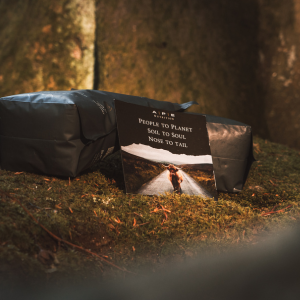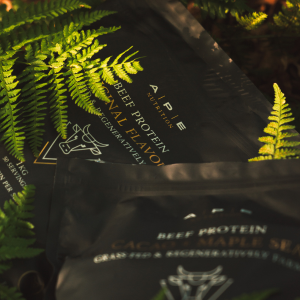At APE we’re big believers in aligning with the seasons and with that in mind, appreciate that this isn’t the best time of the year to make big shifts in your life.
The Spring Equinox is on the 20th March and this is a much better ‘New Year’ to work with if you’re looking for a starting point for a big challenge or a drastic shift in your lifestyle.
This is because as the days begin to get lighter, we naturally get more access to sunlight and our bodies become more energised.
Whereas now, with the UK in the depths of winter, it’s not aligned with our biology to all of a sudden start waking up earlier, exercising more, dieting, etc.
However, we also have the realities of the modern world to contend with. And even the most dedicated amongst us (and rightly so) fall off the bandwagon somewhat over the Christmas and New Year period.
So with all of that in mind we’ve created a 21 Day Reset, that we’re starting next Monday (January 13th) and we’d love you to join us in.
This isn’t designed to be a big overhaul to your lifestyle but rather a gentle guide to get back on track.
Through implementing these seven small habits (and one bonus one off task), you’ll get yourself into a good place to really kick things off come March.
7 small habits, which when done daily, change your life...
1) No phone for X amount of time in the morning and evening.
We’ve not specified a timeframe on this because we want you to choose something that’s realistic and you can 100% stick to for the entire three weeks. Personally we’re doing 60 mins in the morning and 90 mins in the evening. Basically every evening you put your phone on aeroplane and red light mode at your specified time and don’t take it off until your time is up the next morning.
In my opinion, the amount of time people are spending in front of screens, especially phones, is one of the worst and least talked about things impacting our health today.
This is especially true first thing in the morning and last thing at night. I know so many people (and I used to be really guilty of this) who check their phone first thing upon waking and just before bed.
This exposes your eyes to blue light before they have a chance to see the sun / after the sun has gone down, upsetting your circadian rhythm. The blue light can trigger cortisol spikes, not to mention how we are impacted by the notifications, work emails, social media, news etc that we tend to look at when we open our phone.
The biggest impact I've noticed personally from not checking my phone first thing is how my attention span increases. I think this is down to when you look at your phone you're exposed to a constantly changing stimulus and this conditions your brain for this sort of pattern for the rest of the day, which doesn't serve me (or I think anyone) well in real life - when I'm trying to focus on work, training or being present with the people around me. And my sleep has definitely improved from stopping checking it for an hour and a half before bed.
2) First light and last light
Expose your eyes / skin to sunlight as soon as the sun comes up or you wake up in the morning. And do the same in the evening for last light. I know it doesn’t feel like this one would make much of a difference in the UK winter but it really does. You can download a Light Meter or Lux Meter app on your phone and measure the difference in the light exposure outdoors on an overcast day vs indoors to see for yourself.
Doing this helps set your circadian rhythm (wake/sleep cycles) and will have you feeling more energised in the morning and sleeping better at night. Getting your circadian rhythm dialled also has important knock on impacts for our hormones, nervous system and and digestion.
*Bonus points if you can go barefoot to connect your skin to the earth. This balances the electromagnetic field within the body to mitigate stress.
3) 10m walk after each meal or if not possible 30 mins of walking total per day
This is hands down one of my favourite health 'hacks' as it's so easy to implement.
When we eat, our blood sugar increases. And the more carbohydrates we have in a meal, the greater this increase will be.
Keeping your blood sugar stable is a key to health and longevity. However, the reality is, we're all going to spike it to greater or lesser extents all the time - you've gotta eat right.
That said, going for a 10 minute walk post meals has been shown to really stabilise blood sugar levels. Not only this, but it helps with digestion, exposes us to different spectrums of light throughout the day (further aiding circadian rhythm and general health), and raises our daily calorie expenditure helping us stay lean.
If getting 10m in post each meal isn't realistic for you, just shoot for 30mins throughout the day.
4) No processed foods, especially sugar, gluten or seed oils
This is something many of you will already be doing but it’s always good to take stock and dial it in just incase your slipping.
Every time we eat we have the opportunity to either build our body into something stronger or break it down.
There’s nothing wrong with having a treat every now and again but having periods without inflammatory foods is always beneficial to our bodies. But for the sake of the re-set, the goal is to completely cut out:
- Processed foods
- Processed sugar
- Gluten and
- Seed oils (vegetable, rapeseed, canola, sunflower, corn etc)
- Processed sugar
- Gluten and
- Seed oils (vegetable, rapeseed, canola, sunflower, corn etc)
5) Exercise 3-5 times per week
When people ask me what the best training to do is, I always say whatever you enjoy. The key is consistency and you're way more likely to do something that you don't find a chore.
For me this is strength training and calisthenics but it could literally be whatever; running, cycling, badminton, etc.
If you don't know what yours is yet, I really encourage you to spend however long you need experimenting and working it out because regularly training is so important for both your mental and physical health.
If you want to take things to the next level and optimise your training around research based principles for health, there are three key pillars to look at;
// Strength & Resistance Training // Muscles are often called the organs of longevity. This is because research shows that as people age, the greater their muscle mass is, the lower their chances of all cause mortality (death by any cause) are. I'm not talking about being a bodybuilder here (there's definitely a point of diminishing returns), I'm just talking about maintaining as much muscle mass as possible as we get older. A really safe an effective way to do this is through weight training.
// Cardio // I went to a talk on how our genetics impact health a couple of years ago. The presenter talked about all the genetic variations in people and how they may mean we're predisposed or not to all kinds of diseases. They then went on to talk about the things we can do to lower our chance of developing these diseases even if we're genetically predisposed to them. Doing excise to raise your heart rate above what it is usually (basically something that's going to get you breathing heavy) was a way to help prevent pretty much everything.
// Mobility // Human beings are meant to be able to move; jump, run, swing, squat, climb, etc. These attributes tend to fade as we age, especially in the modern world, which is so sedentary. Mobility / primal movements are a great way to combat this and my friend Tom Harries did a great post all about them here
The duration and intensity is up to you but I’d shoot for at least 30 minutes per session.
6) Peace Points
This is a new practise I implemented towards the end of last year, which has made a huge difference to my life. Basically I have four ‘peace points’ throughout my day; first thing in the morning, before lunch, after I finish work and last thing at night before bed. You can have more or less than this, whatever works for your lifestyle, but even having one will make a difference. During these times I do some sort of meditation, breath-work or relaxing stretching. They only need to be 3 minutes long (although you can make them much longer if you like). I usually do 10-15 mins in the morning, 2 x 3 minutes during the day and then about 30 mins in the evening.
Here’s some examples of what I use to help facilitate the points:
- East Forest Meditation (9 mins)
- Triple Flame App app (3 mins)
- Listen to 1 song from Izzi's meditation playlist (3-8 mins)
- Breath-work (4 mins)
- Stretch routine (5-15 mins) I’ll also pair this with listening to a book - currently I’m listing to: Letting Go by David Hawkins
- Bree Melanson Breathwork (17 mins)
- Triple Flame App app (3 mins)
- Listen to 1 song from Izzi's meditation playlist (3-8 mins)
- Breath-work (4 mins)
- Stretch routine (5-15 mins) I’ll also pair this with listening to a book - currently I’m listing to: Letting Go by David Hawkins
- Bree Melanson Breathwork (17 mins)
7) Eat organ meat
Organ meat, especially liver is the most nutrient dense food available to us on planet earth. It’s truly nature’s multivitamin. As a general guideline we recommend everyone aim to eat 200-250g of grass-fed liver per week to keep your nutrient levels high and body functioning optimally.
If you can’t source high quality organ meat locally or struggle with the taste / texture, we’ve set up a 20% off discount code for anyone taking part in the challenge. Please use the code 21DAYRESET if you’d like to get a bottle and we’d recommend 6 capsules per day.
Bonus) Farmers market
Do some research and find your local farmers market, grass-fed butchers or health food shop and make an effort to head down there and buy yourself some top quality food.
It's great to see over recent years how many local, organic and regenerative options have popped up around the UK... and many of you helped contribute to the the database of high quality shops we pulled together making it easier for our community to find the best of the best.
So, take a look at the list and if something isn’t near enough, do your research and get out there to support our local community of farmers doing things the right way! Let us know if you find a new one and we can get it added to the list!
To help you keep on track, we created a tracker (image above).
How to download it:
On desktop, simply hover your mouse over the image and right click and you'll be able to save to downloads.
If you're taking part we'd love to see, so please tag us in anything you put up on socials. And we really hope this helps you get yourself (gently) back on track after the holidays!
In health,
Josh, Izzi & the APE Team







